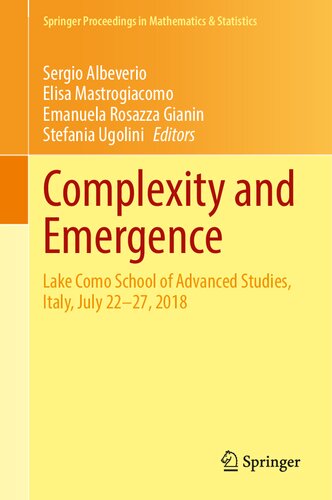

Most ebook files are in PDF format, so you can easily read them using various software such as Foxit Reader or directly on the Google Chrome browser.
Some ebook files are released by publishers in other formats such as .awz, .mobi, .epub, .fb2, etc. You may need to install specific software to read these formats on mobile/PC, such as Calibre.
Please read the tutorial at this link: https://ebookbell.com/faq
We offer FREE conversion to the popular formats you request; however, this may take some time. Therefore, right after payment, please email us, and we will try to provide the service as quickly as possible.
For some exceptional file formats or broken links (if any), please refrain from opening any disputes. Instead, email us first, and we will try to assist within a maximum of 6 hours.
EbookBell Team

5.0
48 reviewsThis book includes contributions about mathematics, physics, philosophy of science, economics and finance and resulted from the Summer School “Complexity and Emergence: Ideas, Methods, with a Special Attention to Economics and Finance” held in Lake Como School of Advanced Studies, on 22–27 July 2018.
The aim of the book is to provide useful instruments from the theory of complex systems, both on the theoretical level and the methodological ones, profiting from knowledge and insights from leading experts of different communities. It moves from the volume editors' conviction that to achieve progress in understanding socio-economical as well as ecological problems of our complex word such preparation is needed, together with a critical reconsideration of our basic scientific and economical approach.
The potential readers are primarily master and doctorate students of mathematics, information sciences, theoretical physics and economics, as well as research workers in those areas, who want to enlarge their spectrum of knowledge towards the area of complexity and emergence. Since ideas and methods of the theory of complex systems also apply to other areas (from engineering and architecture to biology and medicine, e.g.), students and research workers from those areas will also profit from this book.